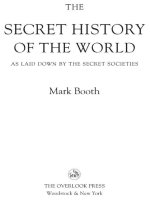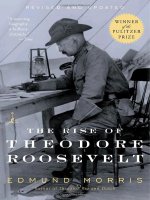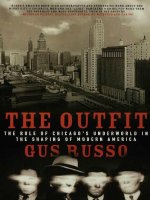Madison smartt bell HAITI 02 master of the crossroads (v5 0)
Bạn đang xem bản rút gọn của tài liệu. Xem và tải ngay bản đầy đủ của tài liệu tại đây (3.35 MB, 611 trang )
Table of Contents
Title Page
Dedication
Epigraph
Praise
Fort de Joux, France August 1802
Part One - KALFOU DANJERE 1793–1794
Chapter 1
Chapter 2
Chapter 3
Chapter 4
Chapter 5
Chapter 6
Chapter 7
Chapter 8
Chapter 9
Fort de Joux, France August 1802
Part Two - BLACK SPARTACUS 1794–1796
Chapter 10
Chapter 11
Chapter 12
Chapter 13
Chapter 14
Chapter 15
Chapter 16
Chapter 17
Chapter 18
Chapter 19
Chapter 20
Fort de Joux, France September 1802
Part Three - GOUTÉ SEL 1796–1798
Chapter 21
Chapter 22
Chapter 23
Chapter 24
Chapter 25
Chapter 26
Chapter 27
Chapter 28
Chapter 29
Chapter 30
Fort de Joux, France September 1802
Part Four - THE WAR OF KNIVES 1799–1801
Chapter 31
Chapter 32
Chapter 33
Chapter 34
Chapter 35
Chapter 36
Chapter 37
Chapter 38
Chapter 39
Chapter 40
Fort de Joux, France September 1802
GLOSSARY
CHRONOLOGY OF HISTORICAL EVENTS
ORIGINAL LETTERS AND DOCUMENTS
CLASSIFICATION OF RACES IN COLONIAL SAINT DOMINGUE
A NOTE ON CREOLE ORTHOGRAPHY
Acknowledgments
About the Author
ALSO BY MADISON SMARTT BELL
Copyright Page
Most special thanks to Jane Gelfman, Cork Smith, Dan Frank, Lisa Hamilton, and Altie Karper for
arduous, painstaking work on the manuscript, and to Bill Buford and Sonny Mehta for taking the
chance when the risk was high.
Sometimes, if you let a man live, he is less dangerous than if you kill him. If you kill him, You will never
be rid of him.
—Jean-Bertrand Aristide as quoted by Amy Wilentz in The Rainy Season
ACCLAIM FOR Madison Smartt Bell’s
MASTER of the CROSSROADS
“A stunning achievement: marvelously crafted, meticulous in its historical detail, magnificent in its
sweep.”—The Seattle Times
“[A] rich novel. . . . Its huge tapestry of scenes on battlefields and plantations, in ranches and
churches, vibrantly reanimates Bell’s cast of real and fictional characters. . . . [Toussaint] is now one
of the great characters in modern literature.”—San Francisco Chronicle
“An absorbing and . . . majestic read. . . . [Bell] could not have chosen a more resonant setting than
Haiti, nor found a more telling figure in whom to summon contemporary hopes and fears.”—Chicago
Tribune
“This meticulously researched novel has the feel of a tableau by Delacroix: a generous swirl of
individual and collective fervor.”—The New Yorker
“A fascinating tale. . . . Bell rides his near-perfect prose style through the terrain of the human psyche
with astonishing ease.”—The Philadelphia Inquirer
“Bell has learned well the lessons of [Tolstoy]. . . . [The] human drama of families, lovers and
individual quests for self-knowledge envelops the reader in a brilliant blend of history and
fiction.”— The Oregonian
“Atmospheric, well-researched, and well-written. . . . The unfolding of Haitian history is a
fascinating tale, and Bell tells it with great skill.”—Pittsburgh Post-Gazette
“Provides a history lesson that tells us much about our present and, perhaps, constitutes a warning for
our future.”—The Miami Herald
“Read this novel to get a feel of life and death in the midst of one of the New World’s major political
and military uprisings . . . in this trilogy we find the talented Madison Smartt Bell at the crossroads of
his career.”—The Dallas Morning News
FOR PÈRE ANTOINE ADRIEN, WHO HAS OFFERED HIS LIFE TO THIS HISTORY
Michel-Rolph Trouillot, Lóló Beaubrun, Guidel Présumé, Jean de la Fontaine, Alex Roshuk, Gesner
Pierre, Monique Clesca, Lyonel Trouillot, Sabine Sannon, Rodney Saint-Eloi, Ephèle Milcé, Carmen,
Eddie Lubin, Mimerose Beaubrun, Russell Banks, Anne-Carinne Trouillot, Edwidge Danticat, Patrick
Delatour, Gabrielle Saint-Eloi, Meg Roggansack, Richard Morse, Michelle Karshan, Evelyne
Trouillot-Ménard, Georges Castera, Yannick Lahens, Gary Victor, Philippe Manassé, Claudette
Edoissaint, Joel Turenne, Yves Colon, Anna Wardenberg, Benoit Clément Junior, Bob Shacochis,
Edouard Duval-Carrié, Patrick Vilaire, C. S. Godshalk, Père Max Dominique, Père William Smarth,
Judith Thorne, Bernard Éthéart, Bryant Freeman, Ken Maki, Didier Dominique, Rachel Beauvoir,
Max Beauvoir, Robert and Tania Beckham, Dr. Laurent Pierre-Phillipe, Marie Racine, Stephane
D’Amours, Robert Corbett and all citizens of Corbettland too numerous to mention, Amy Beeder,
Hérald Pérard, Ferry Pierre-Charles, Josette Pérard, Kati Maternowska, Elizabeth McAlister, Max
Blanchet, Kathy Grey, Faubert Pierre, Marc Christophe, Laetitia Schutt, Bruce Hoverman, Joel
Dreyfuss, Nancy Ménard, Garry Pierre-Pierre, Paul Ven, Alyx Kellington, Amy Wilentz, Nina
Schnall, Guy Antoine, Daniel Simidor, Beverly Knight Sullivan, Richard Edson, Uriode Orelien,
Baba, RoseMarie Chierici, Gerard Barthelmy, Fritz Daguillard, Robert Stone, les jeunes braves du
Cap including but not limited to Martinière, Saint-Jean, Andy, Tidjo, moun ki mèt nan Morne
Calvaire, you whose names I have not mentioned, you who helped me at the crossroads whose names
I never knew,
Youn sèl nou pèdi,
Ansanm n’a rive.
Fort de Joux, France August 1802
Citizen Baille, commandant of the Fort de Joux, crossed the courtyard of the mountain fortress,
climbed a set of twelve steps, and knocked on the outer door of the guardhouse. When there was no
reply, he hitched up the basket he carried over his left arm and rapped again more smartly with his
right fist. A sentry opened to him, stood aside, and held his salute. Baille acknowledged him, then
turned and locked the door with his own hand.
“Les clefs,” said Baille, and the sentry presented him with a large iron keyring.
“In the future,” Baille announced, “I will keep these keys in my own possession. Whoever has need
of them must come to me. But there will be no need.”
Citizen Baille unlocked the inner door and pulled, heaving a part of his considerable weight
against the pull-ring to set the heavy door turning on its hinges. He stooped and picked up a sack of
clothing from the floor, and carrying both sack and basket, passed through the doorway and turned and
locked it behind him.
The vaulted corridor was dimly lit through narrow loopholes that penetrated the twelve-foot stone
walls. Baille walked the length of it, aware of the echo of his footfalls. At the far end he set down the
basket and the sack and unlocked another door, passed through, and relocked it after him.
Two steps down brought him to the floor of the second vaulted corridor, which was six inches
deep in the water that came imperceptibly, ceaselessly seeping from the raw face of the wall to the
left—the living stone of the mountain. Baille muttered under his breath as he traversed the vault; his
trousers were bloused into his boots, which had been freshly waxed but still leaked around the seams
of the uppers. Opening the next door was an awkward affair, for Baille must balance the sack and
basket as he worked the key; there was no place on the flooded floor to lay them down.
Ordinarily he might have brought a soldier or a junior officer to bear those burdens for him, but the
situation was not ordinary, and Baille was afraid—no (he stopped himself), he was not afraid, but . . .
He could not rid his mind of the two officers of the Vendée who had lately escaped from this place. It
was an embarrassment, a scandal, a disgrace, and Baille might well have lost his command, he
thought, except that to be relieved of this miserable, frozen, isolated post might almost have been
taken as a reward rather than a punishment. He still had little notion how the escape had been
possible. There was none among his officers or men whom he distrusted, and yet none could give a
satisfactory explanation of what had taken place. The prisoners could not have slipped through the
keyholes or melted into the massive stone walls, and the heavy mesh which covered the cell windows
(beyond their bars) was not wide enough to pass a grown man’s finger.
His current prisoner was vastly more important than those officers could ever dream to be—
although he was a Negro, and a slave. From halfway around the world Captain-General Leclerc had
written to his brother-in-law, the First Consul, Napoleon Bonaparte himself, that this man had so
inflamed the rebel slaves of Saint Domingue that the merest hint of his return there would overthrow
all the progress Leclerc and his army had made toward the suppression of the revolt and the
restoration of slavery. Perhaps only the whisper of the name of Baille’s prisoner on the lips of the
blacks of Saint Domingue would be sufficient cause for that Jewel of the Antilles, so recently
France’s richest possession overseas, to be purged yet another time with fire and blood. So wrote the
Captain-General to his brother-in-law, and it seemed that the First Consul himself took the liveliest
interest in the situation, reinforcing with his direct order Leclerc’s nervous request that the prisoner
be kept in the straitest possible security, and as far away as possible from any seaport that might
provide a route for his return.
The Fort de Joux, perched high in the Alps near the Swiss border, met this second condition most
exactly. One could hardly go farther from the sea while still remaining within French borders. As for
security, well, the walls were thick and the doors heavy, the windows almost hermetically sealed. In
the case of the recent escape there had most certainly been betrayal. The officers had somehow
obtained the files they used to cut their bars, and probably had enjoyed other aid from some unknown
person in the fort. For this reason Baille had chosen to wait upon his new prisoner himself and alone,
at least for the present, despite the inconvenience it occasioned.
While pursuing this uneasy rumination, he had crossed the third corridor, which was set at a higher
level than the one before and therefore was less damp. He opened and relocked the final door and
turned to face the openings of two cells. Clearing his throat, he walked to the second door and called
out to announce himself. After a moment a voice returned the call, but it was low and indistinct
through the ironbound door.
Baille turned the key in the lock and went in. The cell, vaulted like the passages leading to it, was
illuminated only by coals of the small fire. Baille’s heart quivered like a jelly, for it seemed there
was no one in the room—he saw with his frantically darting eyes the low bed, stool, the table . . . but
no human being. He dropped the sack and clapped a hand over his mouth. But now the man was
standing before him after all, not five paces distant, as if he had been dropped from the ceiling—or
had spun himself down, like a spider on its silk. Indeed the barrel vault overhead was filled with
dismal shadows, so that Baille could not make out the height of its curve. The vault dwarfed the
prisoner, a small Negro unremarkable at first glance, except that he was slightly bandy-legged. Baille
swallowed; his tongue was thick.
“Let us light the candle,” he said. When there was no response he went to the table and did so
himself, then turned to inspect the prisoner in the improved light.
This was Toussaint Louverture, who had thought to make the island colony of Saint Domingue
independent of France. He had written and proclaimed a constitution; he had, so rumor ran, written to
the First Consul with this arrogant address: “To the first of the whites from the first of the blacks.”
But now, if this arrogance had not been exactly punished, it had certainly been checked by many rings
of stone.
Baille faced his guest with a smile, feeling his lips curve on his face like clay. “I have brought your
rations,” he said.
Toussaint did not even glance at the basket, which Baille had set down on the table when he struck
the light. He looked at the commandant with a cool intensity which Baille found rather unnerving,
though he did his best to hold . . . after all, it was not quite a stare. Toussaint’s head was
disproportionately large for his body, with a long lower jaw and irregular brown teeth. His eyes,
however, were clear and intelligent. He wore a madras cloth bound around his head and the uniform
of a French general, which was, however, limp and soiled. Apparently he had had no change of his
outer garments since he had first been made prisoner and deported from Saint Domingue.
“I have brought you fresh clothing,” Baille said, and indicated the sack he had dropped on the floor
in his first surprise. Toussaint did not shift his gaze to acknowledge it. Presently Baille picked up the
sack himself and stooped to lay out the contents on the low bed.
“This uniform is not correct,” Toussaint said.
Baille swallowed. “You must accept it.” Somehow he could not manage to phrase the sentence
with greater force.
Toussaint looked briefly at the coals in the fire.
“Your uniform is soiled and worn, and too light for the weather,” Baille said. “It is already cold
here, and soon it will be winter, sir—” This sir escaped him involuntarily. He stopped and looked at
the woolen clothes he had unfolded on the bed. “Acceptez-les, je vous en prie.”
Toussaint at last inclined his head. Baille sighed.
“I must also ask that you surrender any money you may have, or any . . .” He let the sentence trail.
He waited, but nothing else happened at all.
“Do you understand me?” This time Baille suppressed the sir.
“Yes, of course,” Toussaint said, and he turned his head and shoulder toward the door. Baille had
already begun walking in that direction before he recognized that he had been dismissed, that he
should not permit himself to be so dismissed, that it was his clear duty to remain and watch the
prisoner disrobe and see with his own eyes that he held nothing back. However, he soon found
himself against the outside of the door, unreeling in his mind long strings of curses, although he did
not know for certain if it were the prisoner or the assigned procedures he meant to curse.
After a few minutes he called out. The same indistinct mutter returned through the door, and Baille
opened it and went back in. Toussaint stood in the fresh clothes that had been given him; his feet,
incongruously, were bare. Or rather Baille felt that he himself would have looked absurd and foolish
standing barefoot in such a situation, but it detracted in no way from the dignity of the prisoner.
Toussaint motioned toward the table with a slight movement of his left hand.
Baille approached. On the table lay some banknotes and coins, a couple of documents of some sort,
a watch with a gold chain.
“I will keep my watch,” Toussaint said, and already his hand had gathered it up and put it into a
pocket, chain and all. There seemed nothing to do but assent; Baille nodded and scooped up the
money and papers without looking at them, feeling a stir of shame. Toussaint had stuffed the dirty
uniform into the sack in which the other clothes had come. Baille picked up the sack and also
collected Toussaint’s high-topped military boots—he had furnished a pair of ordinary shoes, but it
was not his concern whether the prisoner chose to put them on.
“I have need of pen and ink and paper,” Toussaint said. “I must write letters—I must make my
report to the First Consul.”
“I shall look into the matter,” Baille said, and thought of notes somehow forwarded through mesh,
through keyholes, folded into minute pellets and passed to confederates outside the prison. No, he
would not furnish the writing supplies on his own authority.
“As quickly as possible.” A hint of a smile on Toussaint’s face, but only a flicker, and his look was
stern, commanding. “My duty is urgent.”
Baille undertook no direct reply. “Good evening,” he said, and swallowed the sir, as he made his
retreat.
Toussaint stood near the door of the cell, listening to the lock springs snapping, hinges groaning in
succession, each sound somewhat fainter than the one before, as Baille receded down the series of
passageways. He could hear the commandant’s feet splashing in the middle corridor, or thought that
he could. Then nothing. He moved from the doorway, his bare feet splaying over the flagstones of the
floor. The bell of the castle clock rang with a grating of discontent. Toussaint pulled his watch from
the pocket of the coat he had been furnished, and opened the case. It was a quarter past seven.
Darkness had come early, or at any rate there was no light at the barred window, but the embrasure
had been bricked over two-thirds of the way to the top, and the mesh beyond the bars never strained
much daylight through itself, regardless of the hour.
He had learned that now. He replaced the watch and felt the other pockets of the coat from the
outside, here and there; he had in fact kept back a few gold coins and a couple of letters from Baille’s
lackadaisical inspection. The wool coat and trousers fit him loosely, but were warm enough. The
uniform of a private soldier, with all insignia cut away. Toussaint coughed thickly and held his hand
over the center of his chest, hoping to suppress another spasm. He had caught a heavy cold on his
journey from Brest across France to the Fort de Joux, and the cough was lingering. His whole rib
cage felt bruised by it. He did not like what Baille had said of the approach of winter . . . which
seemed to prove this cell would be no temporary way station. He expected an interview with the First
Consul—the opportunity to speak on his own behalf, explain his conduct—he expected, at the least, a
trial. It must be a military tribunal before which he would appear in the uniform of his rank in the
French army, and therefore he also disliked the clothes he had been given, though they were perfectly
serviceable otherwise. Their coarse quality, even their previous use, was no great matter to him; he
had known worse.
He walked to the table and turned back the wooden lid of the basket. Salt meat (already cut), a
pale, hard, crumbly cheese, a supply of biscuit. Ship’s rations, more or less. There was a flagon of
red wine and what struck him as a meager sack of sugar. Some ground coffee had been included,
along with implements for brewing it and some other utensils with which he might warm the food.
There were two spoons, but of course no knife. He touched the meat—a corner of it crumbled
between his thumb and forefinger. Water had been brought to him separately beforehand, in a clay
pitcher; he might prepare a sort of stew. Toussaint hesitated. In Saint Domingue, he had been careful
of poisoning. Among any company he did not entirely trust (and there was little company he trusted
absolutely), he would eat only uncut fruit, a piece of cheese sliced by his own hand from the center of
the round, a whole roll or uncut loaf of bread—and drink plain water, never wine.
He raised a scrap of the salt meat and sniffed it, nostrils flaring, then let it fall back into the basket.
Turning his head at an angle, he smiled slightly to himself. In this predicament, he would of course be
unable to sustain his former precautions. Unless he elected to starve himself, his jailers might poison
him whenever they would. Therefore it was useless for him to concern himself about it. He would eat
as his appetite commanded, and without concern. But for the moment he was not hungry.
He took out the wine jug and poured a measure into the cup, then added a small amount of water
and drank—red wine, slightly sour. He shook in some sugar from the bag, swirled the cup, and
drained the mixture. The treacly warmth of the wine seemed to coat his throat against the cough. He
closed the lid of the basket and then blew out the candle that Baille had lit when he came in. Firelight
spread yellowly, pulsing on the stones of the floor. Toussaint went to the fireplace. The hearthstone
was warm to his bare feet, and thoroughly dry. He stooped and added a single piece of wood to the
glow of coals.
More distant from the fireside, the flagstones were clammy, not quite damp. He sat on the edge of
the bed and drew on the woollen stockings which had been given him. Cautiously he raised his legs
onto the bed and lay back, holding his breath. The roughness thrust up in the back of his throat, but he
swallowed it back and managed to exhale without coughing. When he touched the raw stone wall
above the bed, his fingers came away moist and slightly chilled. He turned his head away from the
wall and looked into the room, lying partly on his side, his legs slightly bent, his palm cupped under
the left side of his jaw. An observer might have thought he slept, but he was not sleeping. He watched
the fire through slitted eyes and thought of one thing and another: His valet, Mars Plaisir, under lock
and key in the neighboring cell; his wife and sons, confined in some other region of France under
conditions of which he knew little; the accounting he would make, when pen and paper were brought
to him, for the eyes of the First Consul, Napoleon Bonaparte. (And why had Baille been so evasive
about this matter? A flicker of worry touched Toussaint, but he let it pass.) The work of writing
would require some skill, some artifice. He tried to think how he would begin, but it was difficult
without his secretaries, without pen or paper. The words of which his case must be constructed stood
apart from him, as if the pen’s nib would delve them from the paper; they were not part of his mind.
The castle clock struck another quarter-hour, without Toussaint much remarking it. His
concentration was imperfect, and he felt warm and blurry. Perhaps he had a touch of fever, with the
cough. The firelight on the hearth narrowed and flattened into a low red horizon . . . sunrise or sunset.
From the red-glowing slit expanded a featureless plain, whether of land or water was unclear. A dot
interrupted the red horizon; Toussaint blinked his eyes, but the dot persisted. It sprouted spidery
limbs, like an insect or stick figure of a man. The form grew larger by imperceptible degrees, as it
came over the bare plain and toward him.
Part One
KALFOU DANJERE 1793–1794
Si w konnen ou pa fran Ginen
pa rèt nan kalfou
kalfou twa—kalfou danjere
kalfou kat—kalfou règleman
kalfou senk—kalfou pèd pawol
Si w konnen ou pa fran Ginen
pa rèt nan kalfou
—Boukman Eksperyans, “Kalfou Danjere”
If you know you are not an honest believer
don’t stop at this crossroad
Third crossroad—dangerous crossroad
Fourth crossroad—crossroad where accounts are settled
Fifth crossroad—crossroad of speechlessness
If you know you are not an honest believer
don’t stop at this crossroad
In 1793 the colony of Saint Domingue, once France’s most valuable overseas possession,
was French in little more than name. Since 1791 a revolt of the colony’s African slaves had
shredded it from one end to the other. The wars of the Revolutionary French Republic
against the royalist nations of Europe were also playing themselves out on the ground of
Saint Domingue, and on this battlefield France looked very much like losing.
The French population of Saint Domingue was at war with itself. The large proprietors,
slaveowners of royalist predilections, had invited an English protectorate, which would
protect their property, including their slaves. The English had invaded from Jamaica, and
in an alliance with both the royalist French and a faction of mulattoes who also owned
slaves, had taken control of three important ports: Port-au-Prince, Saint Marc, and Môle
Saint Nicolas, along with surrounding territory on the coastal plains. The French
Republicans defended themselves against the invasion as best they could, with few
European troops to support their cause. The mountainous, virtually inaccessible interior of
the colony was in a state of anarchy, traveled by bands of armed blacks in revolt against
slavery. Some, but not all, of those blacks were nominally in the service of Spain, also at
war with the French Republic at this time, and they reported through various black leaders
to the Spanish military across the border in Spanish Santo Domingo. Other blacks served
no one but themselves.
Léger Félicité Sonthonax, the official representative of the French Republic in Saint
Domingue, had proclaimed the abolition of slavery, but very few of the blacks in revolt had
rallied to that banner. Cap Français, the principal town on the north coast, commonly
known as Le Cap, remained technically under French Republican control, but its
commanding officer, General Etienne Laveaux, was besieged farther west, at Port-de-Paix,
caught between the English on one side and the Spanish on the other. Sonthonax,
meanwhile, after losing a battle with the English at Port-au-Prince, had taken the remnants
of his force still farther south.
On the same day that Sonthonax proclaimed the abolition of slavery, one of the black
leaders in the interior issued his own statement, from a small fort in the mountains called
Camp Turel, to the effect that he intended to lead his people to liberty. This leader was
nominally in Spanish service, and nominally the subordinate of the black generals JeanFrançois and Biassou, but in the past couple of years he had been developing a separate
reputation as a skilled and dangerous military commander. In the Proclamation of Camp
Turel he used, for the first time in any written document, the name of Toussaint Louverture.
1
Midday, and the sun thrummed from the height of its arc, so that the lizard seemed to cast no shadow.
Rather the shadow lay directly beneath it, squarely between its four crooked legs. The lizard was a
speckled brown across its back, but the new tail it was growing from the stump of the old was darker,
steely blue. It moved at a right angle and turned its head to the left and froze, the movement itself as
quick and undetectable as a water spider’s translation of place. A loose fold of skin at its throat
inflated and relaxed. It turned to the left and skittered a few inches forward and came to that same
frozen stop. When it turned its head away to the right, the man’s left hand shot out like a whiplash and
seized the lizard fully around the body. With almost the same movement he was stroking the lizard’s
underbelly down the length of the long broad-bladed cutlass he held in his other hand.
The knife was eighteen inches long, blue-black, with a flat spoon-shaped turning at the tip; its filed
edge was brighter, steely, but stained now with lizard blood. The man hooked out the entrails with his
thumb and sucked moisture from the lizard’s body cavity. He cracked the ribs apart from the spine to
open it further and splayed the lizard on a rock to dry. Then he cautiously licked the edge of his knife
and sat back and laid the blade across his folded knees.
At his back was the trunk of a small twisted tree, which bore instead of leaves large club-shaped
cactile forms bristling with spines. The man contracted himself within the meager ellipse of shade the
tree threw on the dry ground. Sweat ran down his cheeks and pooled in his collarbones and
overflowed onto his chest, and his shrunken belly lifted slightly with his breathing and from time to
time he blinked an eye, but he was more still than the lizard had been; he had proved that. After a time
he looped his left hand around the lizard’s dead legs and picked up the knife in his other hand and
began to walk again.
The man was barefoot and wore no clothes except for a strip of grubby cloth bound around his
loins; he had no hat and carried nothing but the cane knife and the lizard. His hair was close-cut and
shaved in diamond patterns with a razor and his skin was a deep sweat-glossy black, except for the
scar lines, which were stony pale. There were straight parallel slash marks on his right shoulder and
the right side of his neck and his right jawbone and cheek, and the lobe of his right ear had been cut
clean away. On his right forearm and the back of his hand was a series of similar parallel scars that
would have matched those on his neck and shoulder if, perhaps, he had raised his hand to wipe sweat
from his face, but he did not raise his hand. Along his rib cage and penetrating the muscle of his back,
the scars were ragged and anarchic. These wounds had healed in grayish lumps of flesh that
interrupted the flow of his musculature like snags in the current of a stream.
He was walking north. The knife, swinging lightly with his step, reached a little past the joint of his
knee. The country was in low rolling mounds like billows of the sea, dry earth studded with jagged
chunks of stone. There were spiny trees like the one where he’d sheltered at midday, but nothing else
grew here. He walked along a road of sorts, or track, marked with the ruts of wagon wheels molded
in dry mud, sometimes the fossilized prints of mules or oxen. Sometimes the road was scored across
by shallow gulleys, from flooding during the time of the rains. West of the road the land became more
flat, a long, dry savannah reaching toward a dull haze over the distant sea. In the late afternoon the
mountains to the east turned blue with rain, but they were very far away and it would not rain here
where the man was walking.
At evening he came to the bank of a small river whose water was brown with mud. He stood and
looked at the flow of water, his throat pulsing. After a certain time he crept cautiously down the bank
and lowered his lips to the water to drink. At the height of the bank above the river he sat down and
began eating the lizard from the inside out, breaking the frail bones with his teeth and spitting pieces
on the ground. He gnawed the half-desiccated flesh from the skin, then chewed the skin itself for its
last nutriment. What remained in the end was a compact masticated pellet no larger than his thumb; he
spat this over the bank into the river.
Dark had come down quickly while he ate. There was no moon but the sky was clear, stars needlebright. He scooped out a hollow for his shoulder with the knife point and then another for his hip and
lay down on his side and quickly slept. In dream, long voracious shadows lunged and thrust into his
side, turning and striking him again. He woke with his fingers scrabbling frantically in the dirt, but the
land was dry and presently he slept once more. Another time he dreamed that someone came and was
standing over him, some weapon concealed behind his back. He stirred and his lips sucked in and out,
but he could not fully wake at first; when he did wake he shut his hand around the wooden handle of
the knife and held it close for comfort. There was no one near, no one at all, but he lay with his eyes
open and never knew he’d slept again until he woke, near dawn.
As daylight gathered he fidgeted along the riverbank, walking a hundred yards east of the road, then
west, trying the water with a foot and then retreating. There was no bridge and he was ignorant of the
ford, but the road began again across the river, beyond the flow of broad brown water. At last he
began his crossing there, holding both arms high, the knife well clear of the stream, crooked above his
head. His chest tightened as the water rose across his belly; when it reached his clavicle the current
took him off his feet and he floundered, gasping, to the other bank. He could swim, a little, but it was
awkward with the knife to carry in one hand. When he reached shore he climbed high on the bank and
rested and then went down cautiously to scoop up water in his hands to drink. Then he continued on
the road.
By midday he could see from the road some buildings of the town of Saint Marc though it was still
miles ahead, and he saw ships riding their moorings in the harbor. He would not come nearer the
town because of the white men there, the English. He left the road and went a long skirting way into
the plain, looping toward the eastward mountains, over the same low mounds and trees as yesterday.
The edge of his knife had dimmed from its wetting, and he found a lump of smoothish stone and honed
it till it shone again. Far from the road he saw some goats and one starveling long-horned cow, but he
knew it was hopeless to catch them so he did not try. There was no water in this place.
When he thought he must have passed Saint Marc, he bent his way toward the coast again. Presently
he regained the road by walking along a mud dike through some rice paddies. People had returned to
the old indigo works in this country and were planting rice in small carrés; some squares were ripe
for harvest and some were green with fresh new shoots and some were being burned for a fresh
planting. When he reached the road itself, there were women spreading rice to dry and winnowing it
on that hard surface. It was evening now and the women were cooking. One of them brought him
water in a gourd and another offered him to eat; he stayed to sup on rice cooked in a stew with small
brown peas, with the women and children and the men coming in from the paddies. Some naked
children were splashing in a shallow ditch beside the road, and beyond was the rice paddy bitasyon,1
mud-wattled cabins raised an inch or two above the damp on mud foundations.
He might have stayed the night with them, but he disliked those windowless mud houses, whose
closeness reminded him of barracoons. Also, white men were not so far away. The French had said
that slavery was finished, but the man had come to distrust all sayings of white people. He saw no
whites or slavemasters now among these people of the rice paddies, but all the same he thanked them
and took leave and went on walking into the twilight.
He was as always alone on the road as it grew dark. The stars appeared again and the road shone
whitely before him to help light his way. Soon he came away from the rice country and now on either
side of the road the land was hoed into small squares for planting peas, but no one worked those
fields at night, and he saw no houses near, nor any man-made light.
In these lowlands the dark did little to abate the heat, and he kept sweating as he walked; the velvet
darkness closed around him viscous as seawater, and the stars lowered around his head to glimmer
like the phosphorescence he had seen when he was drowning in the sea. He seemed to feel his side
was rent by multiple rows of bright white teeth, and he began running down the road, shouting
hoarsely and flailing his knife. Also he was afraid of loup-garous or zombis or other wicked spirits
which bokors might have loosed into the night.
In the morning he woke by the roadside with no memory of ever having stopped. The sun had beat
down on him for half the morning and his tongue was swollen in his head. There was no water. He
raised himself and began to walk again.
Now it was bad country either side of him, true desert full of lunatic cacti growing higher than his
head. The mountain range away to the east was no nearer than it ever had been. He passed a little
donkey standing by the road, whose hairy head was all a tangle of nopal burrs it must have been trying
to eat. He would have helped the donkey if he could, but when he approached, it found the strength to
shy away from him, braying sadly as it cantered away from the road. The man walked on. Soon he
saw standing water in the flats among the cacti, but when he stooped to taste it, the water was too
salty to drink. Presently he began to pass the skulls of cows and other donkeys that had died in this
desert place. Somehow he kept on walking. Now there were new mountains ahead of him on the road,
but for a long time they seemed to come no nearer.
Toward the end of the afternoon he reached a crossroads and stopped there, not knowing how to
turn. One fork of the road seemed to bend toward the coast and the other went ahead into the
mountains. Attibon Legba, he said in his mind, vini moin . . . But for some time the crossroads god
did not appear and the man kept standing on the kalfou, fearing to sit lest his strength fail him to rise
again.
After a time there was dust on the desert trail behind him and then a donkey coming at a trot. When
it came near, he saw it bore a woman, old but still slender and lithe. She rode sideways on the
wooden saddle, her forward knee hooked around the wooden triangle in front. The burro was so
small her other heel almost dragged the ground, as did the long slack straw macoutes that were hung
to either side of the saddle. She wore a brown calico dress and a hat woven of palm fronds, all brim
and no crown, like a huge flat tray reversed over her head.
She stopped her donkey when she reached the kalfou. The man asked her a question and she
pointed with the foot-long stick she held in her right hand and told him that the left fork of the road led
to the town of Gonaives. She aimed the stick along the right-hand fork and said that in the mountains
that way there were soldiers—black soldiers, she told him then, without his having asked the
question.
She was toothless and her mouth had shrunken over the gums, but still he understood her well
enough. Her eyes combed over the scars on his neck and shoulder with a look of comprehension, but
at the old wounds on his side her look arrested and she pointed with the stick.
Requin, the man said. Shark.
Requin? the woman repeated, and then she laughed. B’en ouais, requin . . . She laughed some more
and waved her stick at the dry expanses all around them. The man smiled back at her, saying nothing.
She flicked the donkey’s withers with her stick and they went trotting on the road to Gonaives.
Too late he thought of asking her for water, but then those straw panniers had looked slack and
empty. Still he continued walking with fresh heart. These were dry hills he was now entering, mostly
treeless, with shelves of bare rock jutting through the meager earth. The road narrowed, reducing to a
trail winding ever higher among the pleats of the dry mountains. At evening clouds converged from
two directions and there was a thunderous cloudburst. The man found a place beneath a stone
escarpment and filled his mouth and belly with clean run-off from the ledges and let the fresh
rainwater wash him down entirely.
The rain continued for less than an hour and when it was finished the man walked on. Above and
below the trail the earth on the slopes was torn by the rain as if by claws. By nightfall he had reached
the height of the dry mountains and could look across to greener hills in the next range. In the valley
between, a river went winding and on its shore was a little village—prosperous, for land was fertile
by the riverside. After the darkness was complete he could see fires down by the village and
presently he heard drums and voices too, but the trail was too uncertain for him to make his way there
in the dark, if he had wished to. It was cool at last, high in those hills, and he had drunk sufficiently.
He scooped holes for his hip and shoulder as before and lay above the trail and slept.
Next morning there was cockcrow all up and down the mountains and he got up and walked with
his mouth watering. The stream he’d seen the night before proved no worse than waist-deep over the
wide gravel shoal where he chose to cross. Upstream some women of the village were washing
clothes among the reeds. When he had crossed the stream, he turned back and stooped and drank from
it deeply and then began climbing the green hills with the water gurgling in his stomach.
In a little time zigzag plantings of corn appeared in rough-cut terraces rising toward the greener
peaks. He broke from the trail and picked two ears of corn and went on his way pulling off the shucks
and gnawing the half-ripened kernels, sucking their pale milk. After he had thrown away the cobs his
stomach began to cramp. He hunched over slightly and kept on walking, pushing up and through the
pain till it had ceased. Now there was real jungle above and below the trail, and plantings of banana
trees, and mango trees with fruit not ripe enough to eat.
When he had crossed the backbone of this range, he began to see regular rows of coffee trees, the
bean pods reddening for harvest. And not much farther on were many women gathered by the trail’s
side, with goods arrayed for a sort of market: ripe mangoes and bananas and soursops and green
oranges and grapefruit. A woman held a stack of folded flat cassava bread, and another was roasting
ears of corn over a small brazier. Also a few men were there, and some in soldiers’ uniforms of the
Spanish army, though all of them were black.
The man crouched over his heels and waited, the knife on the ground near his right hand. The
soldiers made their trades and left—it was only they who seemed to deal in money. Among the others
all was barter, but the man had nothing to exchange except his knife and that he would not give up.
Still a woman came and gave him a ripe banana whose brownflecked skin was plump to bursting, and
another gave him a cassava bread without asking anything in return. Squatting over his heels, he ate
the whole banana and perhaps a quarter of the bread, eating slowly so that his stomach might not
cramp. When he had rested he stood up and followed the way the soldiers had taken, carrying his
knife in one hand and the remains of the bread in the other.
The opening of the trail the soldiers used was hidden by an overhang of leaves, but past this it
widened and showed signs of constant use. The man crossed over a ridge of the mountain and looked
down on terraces planted with more coffee trees. In the valley below was a sizable plantation with
carrés of sugarcane and the grand’case standing at the center as it would have done in the days of
slavery not long since, but all round the big house and the cane fields was encamped an army of black
soldiers.
He was not halfway down the hill before he tumbled over sentries posted there. They trained their
guns on him at once and took away his knife and the remainder of his bread. They asked his business
but did not give him time to answer. They made him put his hands up on his head and chivied him
down the terraces of coffee, prodding him with the points of their bayonets.
In the midst of the encampment some of the black soldiers glanced up to notice his arrival, but most
went on about their business as if unaware. The sentries urged him into the yard below the gallery of
the grand’case. A white man in the uniform of a Spanish officer was passing and the sentries hailed
him and saluted. The white man stopped and asked the other why he had come there. Despite the
uniform his face was not of the Spanish cast and his accent was that of a Frenchman.
Where is Toussaint? the man said. Toussaint Louverture.
The white officer stared a moment and then turned and sharply saluted a black man, also in Spanish
uniform, who was then approaching. The black officer turned and asked the man the same question
once more and the man drew himself up and began to recite:
Brothers and friends, I am Toussaint Louverture. My name is perhaps not unknown to you—
The black officer cut him off with a slashing movement of his hand and the man stared back at him,
wondering if this could be the person he had sought (as the white officer had seemed to respect him
so). But then a silence fell over the camp, like the quiet when birdsong ceases. A large white stallion
walked into the yard and a black man in general’s uniform pulled the horse up and dismounted. His
face was no higher than the horse’s shoulder when he stood on the ground, and his uniform was
thoroughly coated with dust from wherever he’d been traveling.
The two junior officers saluted again and the black one drew near and spoke softly into the ear of
the general. The general nodded and beckoned to the man who had walked into the camp from the
mountains, and then the general turned and started toward the grand’case. His legs were short and a
little bowed, perhaps from constant riding. As he began to mount the grand’case steps, he reached
across his hip and hitched up the hilt of his long sword so that the scabbard would not knock against
the steps as he was climbing. A sentry nudged the man with a bayonet and he moved forward and
went after the black general.
On the open gallery the black general took a seat in a fan-backed rattan armchair and motioned the
man to a stool nearby. When the man had sat down, the general said for him to say again those words
he had begun before. The man swallowed once and began it.
Brothers and friends, I am Toussaint Louverture. My name is perhaps not unknown to you. I
have undertaken to avenge you. I want liberty and equality to reign throughout Saint Domingue. I
am working toward that end. Come and join me, brothers, and fight by our side for the same cause.
The general took off his high-plumed hat and placed it on the floor. Beneath it he wore a yellow
madras cloth over his head, tied in the back above his short gray pigtail. The cloth was a little sweatstained at his brows. His lower jaw was long and underslung, with crooked teeth, his forehead was
high and smooth, and his eyes calm and attentive.
So, he told the man, so you can read.
No, the man replied. It was read to me.
You learned it, then.
Nan kè moin. By heart. He placed his hand above the organ he had named.
Toussaint covered his mouth with his hand, as if he hid a smile, a laugh. After a moment he took the
hand away.









